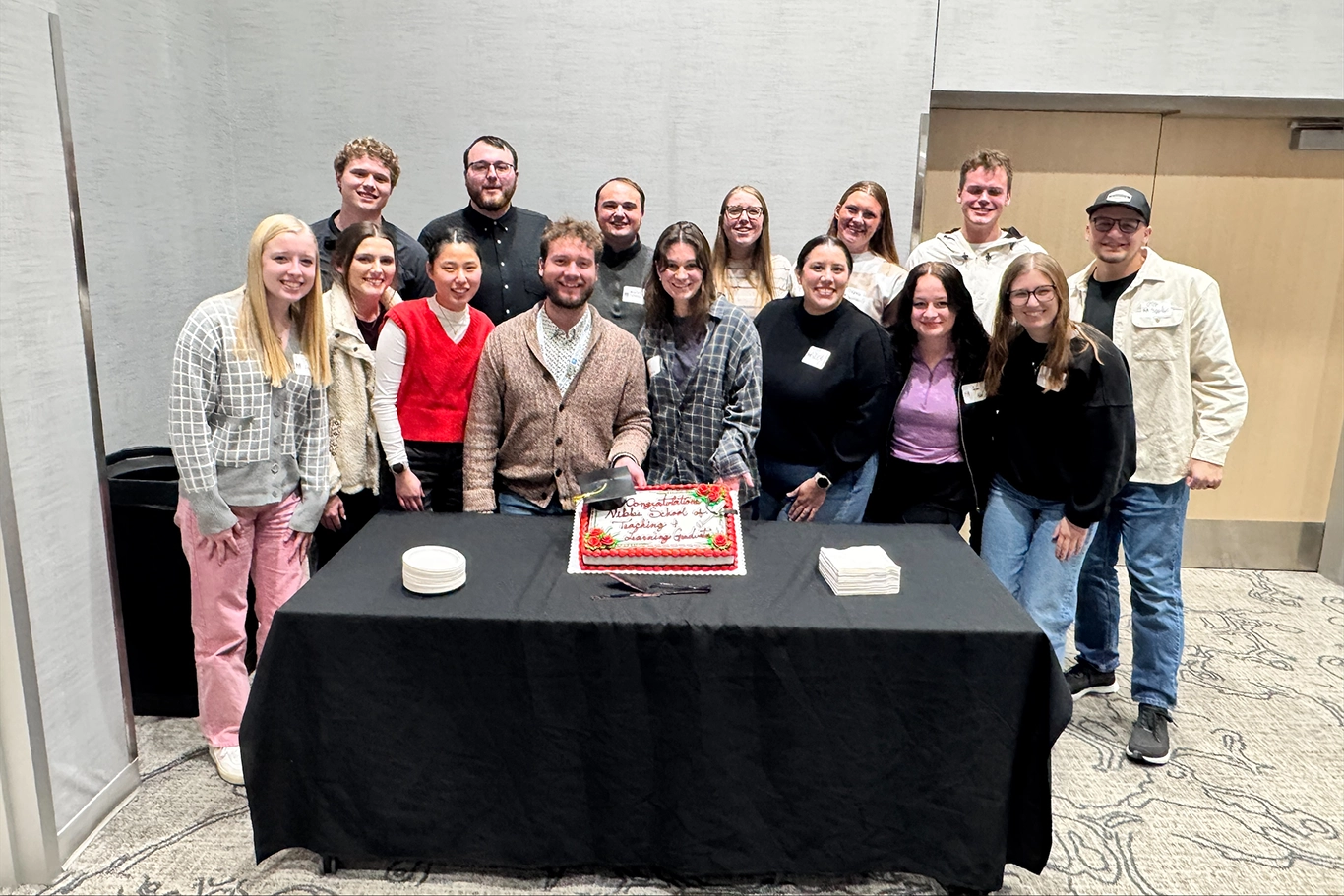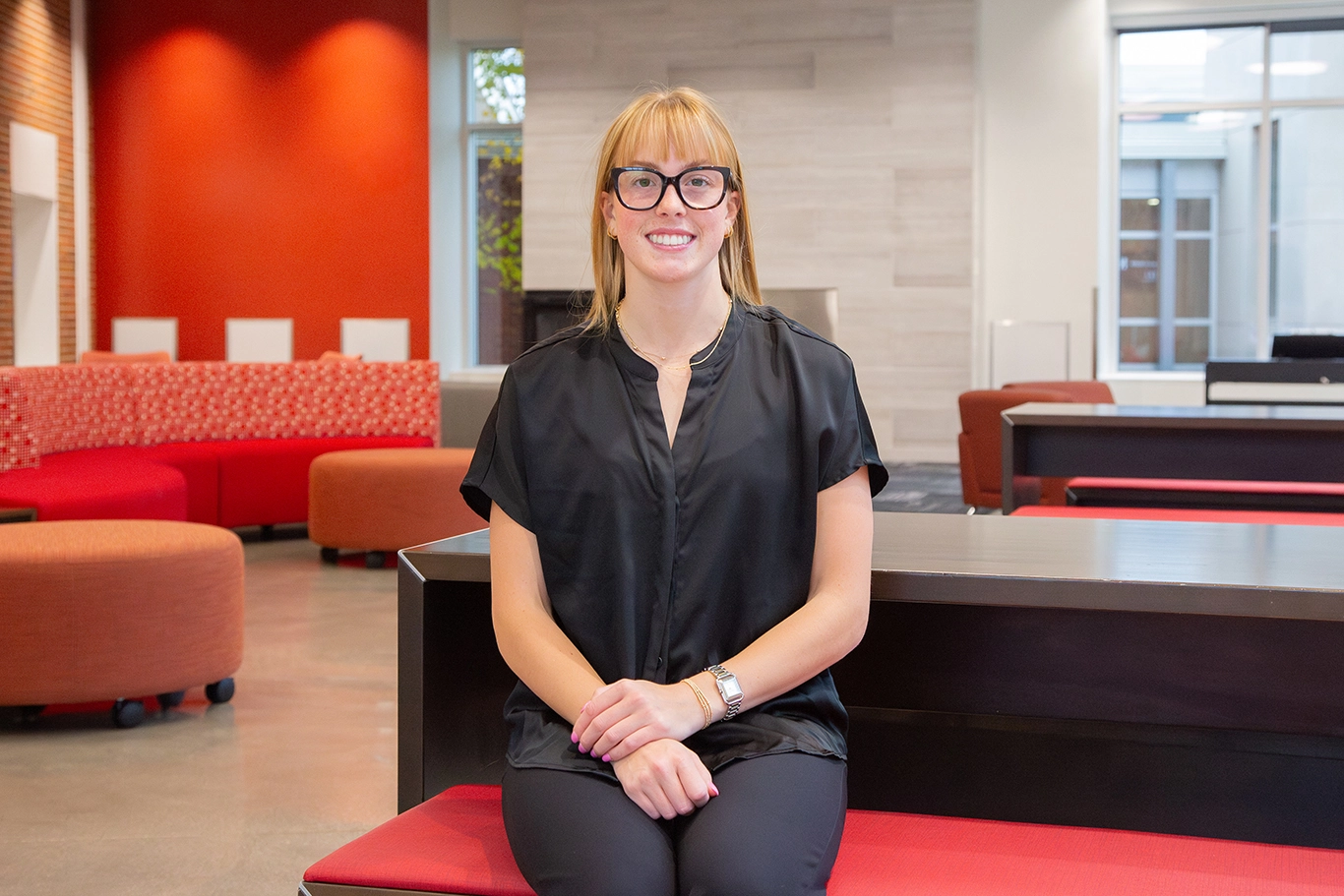Moorhead's Julia Poplin redesigns learning with AI
Dr. Julia Poplin, assistant professor at Minnesota State Moorhead, has spent her career challenging the way students think about learning and how educators think about teaching. When artificial intelligence entered the classroom conversation, she didn't hesitate to meet it head-on.
As the only woman among five faculty fellows selected to shape Moorhead's new Institute of Applied AI, Julia sees artificial intelligence not just as an emerging tool but as a personal challenge.
"AI has made me rethink how I teach," she explains. "It's pushed me to become a better professor, to step outside the box and prepare students for the workforce."
For generations, education has rewarded correct answers over real understanding. Students are trained to avoid mistakes and chase grades. However, that system doesn't reflect their reality after graduation, where critical thinking, adaptability, and communication outweigh memorization.
Julia saw AI as an opportunity to redesign learning. She's now incorporating more project-based and problem-based assessments in her classroom, assignments AI can't solve alone.
Julia's perspective is refreshing in a higher education landscape often overwhelmed by buzzwords.
Julia integrates AI tools like Magic School AI - a platform specifically designed for educators - to enhance planning and instruction lessons. For example, she demonstrates to students how Magic School AI can generate sample discussion questions or modify lesson ideas to support different learning needs, then challenges them to critique, adapt, expand, and execute them.
The conversation is no longer about the "correct answer," it is about how to apply concepts.
"Learning is more than memorizing facts. It's about making meaning from information. That's where human intelligence comes in," Julia says.
That shift is paying off. Students are more engaged, motivated, and producing stronger work.
As a sociocultural theorist, Julia has always centered her teaching around accessibility and student experience. "AI can't replace great teaching," Julia says. "But it can remove barriers that keep students from learning in the first place."
Julia has seen those barriers firsthand: fear of failure, lack of confidence, and uneven academic preparation. AI presents an opportunity to do something about it and help students.
Instead of walking into a classroom unsure, students now have tools to help them find clarity before class even begins. Whether they ask for definitions or explanations, tools like ChatGPT give students a head start and build confidence.
For professors, AI offers the ability to personalize teaching examples for multilingual learners, first-generation students, or those with unique family backgrounds — details that make learning more accessible and effective.
"Teachers are human, we can't know every perspective," she says. "But with AI, we can come a little closer to connecting in meaningful ways."
Moorhead's Institute of Applied AI is a strategic investment in the future. AI faculty fellows are one of several key elements in the Institute, representing different colleges, disciplines, and perspectives and giving them a platform to amplify that impact across campus.
AI faculty fellows will co-lead efforts to help faculty and staff explore practical AI applications within their disciplines and work. She's eager to show how technology can support — not replace — good pedagogy.
"We're not waiting to be told how AI fits in higher education," Julia says. "We're building it from the inside out, with the right people at the table and students at the center."
Whether it's a future teacher using AI to generate different lesson plans or a communication major analyzing audience data, the Institute provides the framework to help students use AI as an extension of their work and values.
Professors like Julia are guiding the way to a future driven by curiosity, grounded in ethics, and committed to helping every student succeed.
The future is knocking. Moorhead is answering.
School of Teaching & Learning
The School of Teaching and Learning is accredited by the Council for the Accreditation of Educator Preparation (CAEP) and provides a comprehensive undergraduate and graduate curriculum that spans early childhood, elementary, secondary and special education to prepare you with high-quality teaching skills and solid grounding in your chosen discipline.
Learn more about Education Degrees


